|
Traditionally, July is a braindead sort of month for me, but the world has turned upside down, and this July, I was filled with passion, creativity, and productivity. Part of that was out of necessity. As Company, my novel of a ghost and an imaginary friend, nears its publication date, and I knew I needed to buckle down and get it done. But part of my creativity may have been an odd reaction to the anxiety engulfing the outside world. By the time June ended, the world outside my door was essentially back in shut-down mode, with cases of the Coronavirus rising in California and other parts of the country. The optimism that swept through May of America re-opening for business had given way to uncertainty and pessimism. We were back to square one, and in some ways worse. This caused a lot of anger. Everyone, it seemed, was either angry about having to wear face masks or angry at the people who refused to wear them. I started the month feeling paralyzed. Small tasks, like returning a library book, felt overwhelming. Fortunately, I had poetry to help me through it. Toward the end of June, I had the sudden urge to read poetry, which I attributed to needing to edit Company. When I know I need to pay close attention to the prose (the ebb and flow of sentences; the choice of words; the way language affects the reader), I can use poetry to jump start my creativity. Poems are, after all, a showcase for language. So I “bought” a free book of poems on Amazon called “Growth” by Karin Cox, and signed up for the “Poem of the Day” for both Poets.org and The Poetry Foundation. As I read my daily poems, I was hit by the sudden urge to write poetry. This did not come at an opportune time. I had about two months to piece together Company, and what I had was a beautiful mess. I had worked hard in May and June to re-write all the major scenes and emotions, and I had a vision in my head.
A vision which was not comprehensible to the reader. For example, sometimes I wrote a scene from multiple point of views, with contradictory information. Other times, I wrote pages of emotional expression and philosophical thought un-anchored by plot or setting. A few things I left blanks, with parentheses of (Note: Add setting) or (Note: Add reaction), letting me know to fill it in later. Other times, I just had too much material--20 page chapters that needed to be cut in half. Basically, it was the writing equivalent of having a messy desk; I knew where everything was, but no one else would be able to find a thing.
0 Comments
I really hadn’t intended to watch this movie. Honestly, I’ve hardly been able to watch any movie without the dog interrupting and whining for attention. But I do still watch movie review shows on YouTube, and as I was watching the John Campea show, he raved about “Husavik,” the final song from Eurovision. I decided to check it out. The song was pretty. I started watching other YouTube videos of Eurovision songs. Then I got curious. Eurovision was out on Netflix, it was free, and it was not a movie that required my undivided attention. At last, I decided to check it out. Eurovision Song Contest: The Story of Fire Saga is a light comedy about Lars and Sigrit, a singing duo that go by the name Fire Saga who hail from a small town in Iceland. Lars (Will Ferrell) dreams of winning the Eurovision song contest in Europe and proving himself to his father. Sigrit (Rachel McAdams) supports his ambitions but would prefer to marry Lars and live a simple life in their hometown. When they find themselves unexpectedly representing Iceland in the Eurovision Song Contest, Sigrit meet a flirtatious Russian singer named Alexander Lemtov (Dan Stevens) who encourages her to find her voice. But Lars’ jealousy and ambition cause cracks to form in the group and may just cost Fire Saga their chance at winning. As I said, I watched the movie mostly because of the songs, which are really catchy and surprisingly good. I ended up grooving to “Double Trouble,” Fire Saga’s official entry into the Eurovision Contest. I wanted a full version of “Volcano Man.” And even though Alexander Lemtov’s “Lion of Love” has some of the cheesiest, cringiest lyrics, I can’t stop listening to it, because let me tell you, the man can sing. Sprinkled in are glimpses of other country’s entries, and they sound like real songs you’d hear on the radio. I know it’s a comedy, but the only reflection of that genre are a couple of silly lyrics and a vague 80s or 90s over-the-top vibe. I’m no music critic, but I fell in love with the songs and binged on them hard. But what was the movie like? I found Eurovision amusing and pleasant. It was set in a world where you knew that nothing too horrible could ever happen, and that was nice. I enjoyed the fluffy escapism. I didn’t find it laugh-out-loud funny, but I grinned at a few gags involving a gaggle of American tourists, a bit of dark humor with a ghost, and some elves who may or may not have been extreme in their measures to ensure the couple got to Eurovision. There were some crude instances of sexual humor that I didn’t find funny, but these were few and far between. For me, Eurovision was at its most sweet and heart-warming when it told the tale of a small town girl who finds her voice on the big stage. I connected to Rachel McAdam’s Sigrit early on, in a scene where she brings biscuits and alcohol to cute little houses in the green hills, where the elves live. Sigrit asks the elves to help them get into the Eurovision song contest, so that Lars can fulfill his ambition and they can hopefully have a life together. She is so earnest and adorable… and who doesn’t love elves? She won me over, and I was rooting for her. Title: Her Last Mission (A Better Late Romance)
Author: Michelle Knowlden Genre: Romance, Mystery/ Thriller Summary Sandra Baak (Sandy) has spent her life periodically impersonating her twin brother Sanford (Ford) in order to make sure he got ahead. When she was seventeen, Sandy spent a year playing Ford while attending a prestigious private school, where she met Mark Orlando. Sandy fell for Mark early on but never had the courage to tell him her true identity. In the intervening years, Sandra has led a full life as a single woman. In addition to her work as an engineer, she uses her skills in technology to conduct counter-espionage missions--again, in the guise of Ford. When her handler suspects that Mark Orlando, the CEO of Orlando Tech, is involved in peddling government secrets, Sandy finds herself once again in the presence of her old flame. Can she continue to keep her identity under wraps while she conducts her last mission? Or is it time to let her disguise go and tell Mark how she feels? Review I know Michelle Knowlden, and I like her stories, the Abishag Mysteries being my favorite. Her latest book came out early this July, for only 99 cents. I was excited, since this is the first full novel of hers I’ve read in a long time. Being a friend may create a bias; however, I will try to be as honest in my review as I can. Her Last Mission is a light and wholesome riff on Twelfth Night with an industrial espionage mystery thrown in. It has its romantic moments, but I would not exactly call it a romance. The love story comes across less like a journey or an experience, and more like a problem that needs to be solved. Between romance, family drama, and mystery, there were a lot of plot threads flying around. The set-up slowed down the first half of the story, but it picked up in the second half. What grounded the story and tied the plot threads together was the character of Sandy, a single older woman who has spent her life fulfilling family and career obligations and now finds herself considering a very different future. She tries to reconcile these different aspects of her life and understand what brought her to this point. I found Sandy’s journey very relatable. For me, it made the book a worthwhile read. Typically, my plans for the 4th of July include hanging out with my family, eating hot dogs and hamburgers fresh off the grill, and making some kind of red, white, and blue dessert. But with COVID-19 raging, I was only able to do one of those three things, i.e., stick some strawberries and blueberries on a store-bought vanilla cupcake and call it a day. From my quarantined apartment, I called my family to wish them a happy Independence Day, ordered a pizza, and watched Hamilton on Disney +. It seemed like the most patriotic thing I could do.
Hamilton tells the life story of Alexander Hamilton, one of America’s founding fathers, who is most famous for co-authoring the Federalist papers, setting up a national bank, and dying in a senseless duel. In this musical play, Alexander Hamilton (Lin-Manuel Miranda) is an immigrant who is “young, scrappy, and hungry” and sees the America Revolution as a way to make a name for himself. Unlike his friend Aaron Burr (Leslie Odom Jr.), who advises him to “talk less, smile more,” Hamilton is vocal about his beliefs, and his gutsiness lands him a position under George Washington (Christopher Jackson). With his loyal wife Eliza (Phillipa Soo) by his side and famous friends, Hamilton rises to the heights of political power--and starts to self-destruct. As his fateful death draws near, what will his story be and who will be the one to tell it? I can’t deny Hamilton was well-done. The music, the dance, the spectacle--it is beautifully crafted, it is impressive, and it hits your emotions hard. But it hit me in a way I didn’t expect, and that’s really what I want to write about. After watching it, I raged, I cried, and now I am going to rant. This is your warning. I have strong opinions about the role of women in Hamilton, and I am going to express my opinions. But first, I want to talk a little about what the play actually is. Hamilton is a big, splashy Broadway musical first and a historical fiction second. It’s not meant to be a critique of history; in fact, I would go so far as to label it a revisionist fantasy. It reinterprets American history through a modern lens, not unlike how certain Shakespeare productions reinterpret their source material. This makes history recognizable to a modern audience, and because we recognize it, we can relate and empathize. Although it includes some politics, Hamilton is, for the most part, about the men who struggled through impossible odds to create a new country. It is a personal story set amid an epic backdrop. In other words, my kind of story. I enjoy a good epic. Hamilton makes a conscious choice to cast people of all colors and races in roles that are historically White. I find this refreshing and inclusionary. I know that some critics have said that, in this environment, simply re-casting the Founding Fathers doesn’t go far enough; we need to look more critically at American history. That may be, but I think I understand what the play’s creator, Lin-Manuel Miranda, was trying to do. I remember, in high school, I would grapple with history, trying to make sense of it and see myself in the people who changed the world. Lin-Manuel Miranda obviously saw himself in Hamilton, an immigrant, who, through ambition, intelligence, and hard work, was able to leave his mark on American culture. I don't think there's anything wrong with this. This is, after all, art, and art does not always have to be accurate. It can be fun. Hamilton is trying to be fun. It’s like kids playing dress-up. It has that joyful feeling of imagination, the boundless possibility that you can do anything and be anyone you want. And I like that feeling. As the play progressed, I found myself getting swept up in a patriotic fervor. When the Battle of Yorktown raged and Americans toppled an Empire, I felt proud, I felt happy. I thought, I am this and this is me, and I am America. In this moment, I felt bonded with my country. And then I glanced in the background of the stage and saw the women walking back and forth like ghosts. That’s when the sour feeling hit me. I realized not everyone is included; women don’t get to have fun. Yes, women are present in the play, but they’re all love interests, and moreover, love interests to Hamilton. A few background dancers are women, but they are not given names or songs. They are like the real women in history, I suppose, living and dying and doing their part to change the world with no name and no fame and no glory. “Who tells your story?” the music asks, but for women, the answer is, “No one.” The Lost Skeleton of Cadavra is an Example of (Intentionally) Bad Writing That is Very Good7/25/2020 The world is sort of crazy, I’m busy with my writing, and the movie theatres are closed. For these reasons, rather than seeking out new movies, I’ve been re-watching some of my old favorites, especially comedies. One such movie wearing out my DVD player right now is a very strange and obscure cult flick called, The Lost Skeleton of Cadavra. The Lost Skeleton of Cadavra has the feel of a bad, black-and-white monster movie from the 1950s, though it was made in 2003. A scientist named Dr. Paul Armstrong (Larry Blamire) and his wife Betty Armstrong (Fay Masterson), the wife of a scientist, are searching for a meteor made of a rare metal known as atmospherum. Dr. Paul Armstrong, a scientist who studies rocks, hopes to use the meteor to do science and better all of mankind through science for the benefit of all. (This is an example of the kind of intentionally repetitive dialogue that riddles the movie.) Meanwhile, evil scientist Dr. Roger Fleming (Brian Howe) hopes to find and revive the famed Lost Skeleton of Cadavra in order to rule the world. Meanwhile, a married pair of aliens named Kro-bar (Andrew Parks) and Lattis (Susan McConnell) crash land their rocket and can’t get home. Meanwhile, the aliens’ escaped mutant rampages through the woods. Roger learns he can only revive the skeleton through atmosphereum. The aliens learn they can only fix their ship through atmosphereum. Everyone collides on the atmosphereum and hijinks ensue. The Lost Skeleton of Cadavra is a movie you can really only appreciate if you’ve seen lots of bad movies, particularly bad monster/ sci-fi movies from the 50s. I did not have this background the first time my uncle showed the movie to me, and as a result, I was perplexed and sort of bored. It just seemed like a bad movie. However, after watching several episodes of Mystery Science Theatre 3000, I came to truly understand what bad movies were, making The Lost Skeleton of Cadavra seem like a brilliant parody and also, surprisingly, a pretty good movie on its own merits. |
Rebecca LangWriter. Critic. Dreamer. Archives
January 2021
Categories
All
|

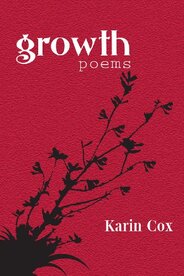
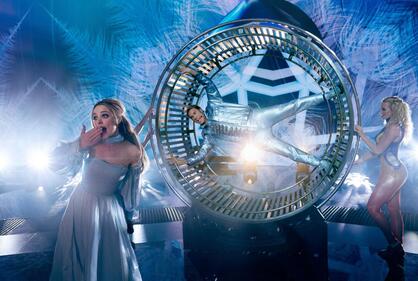
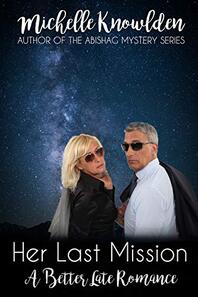
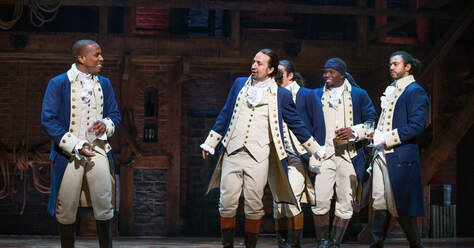
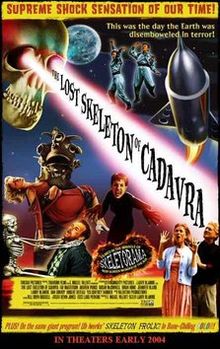
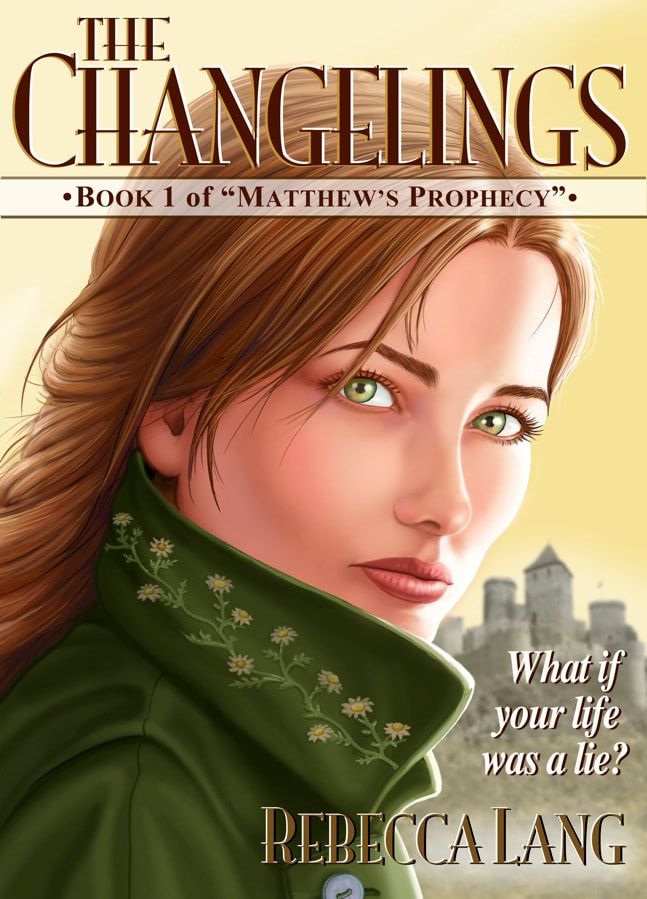
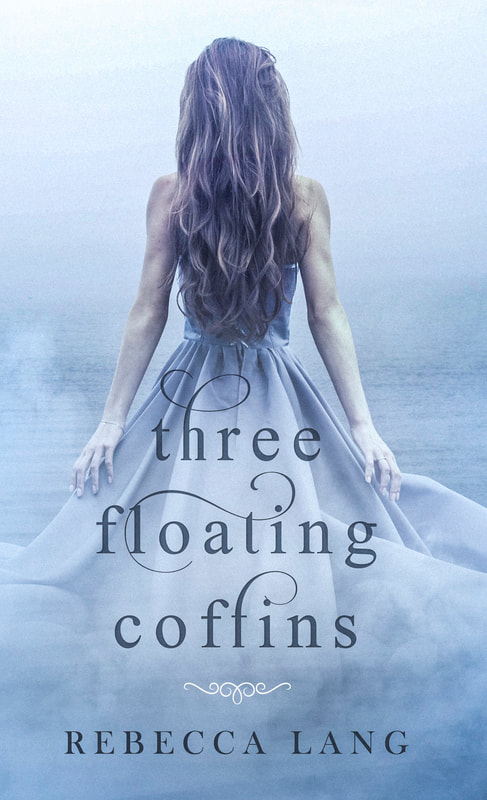
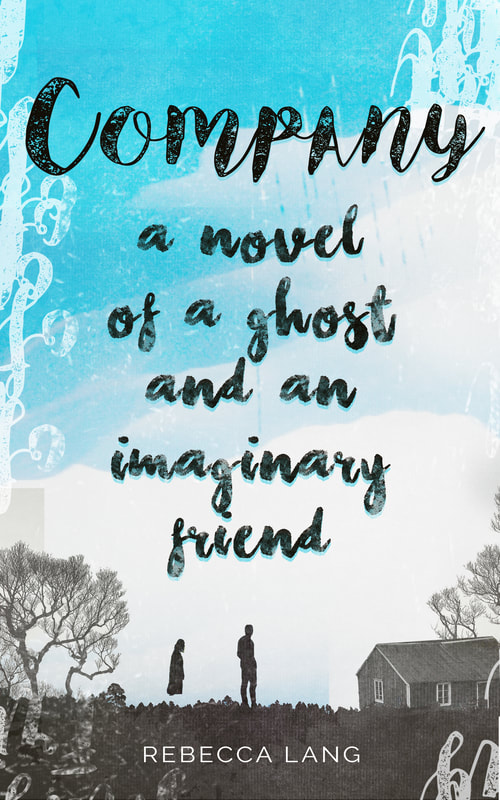
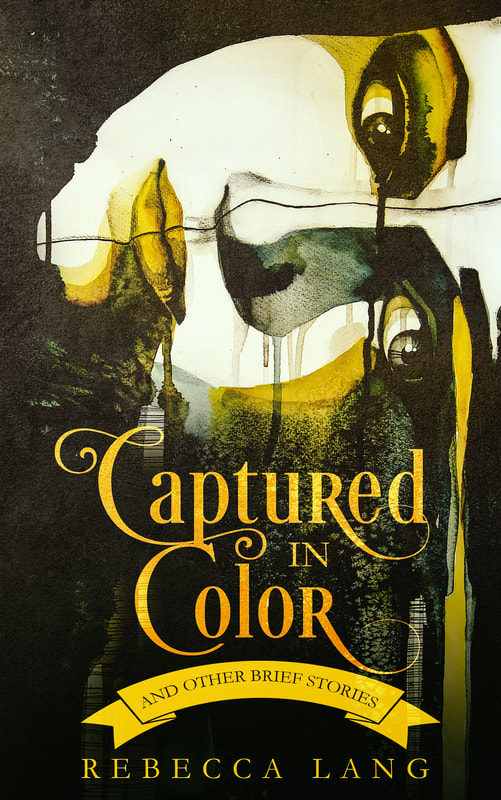
 RSS Feed
RSS Feed